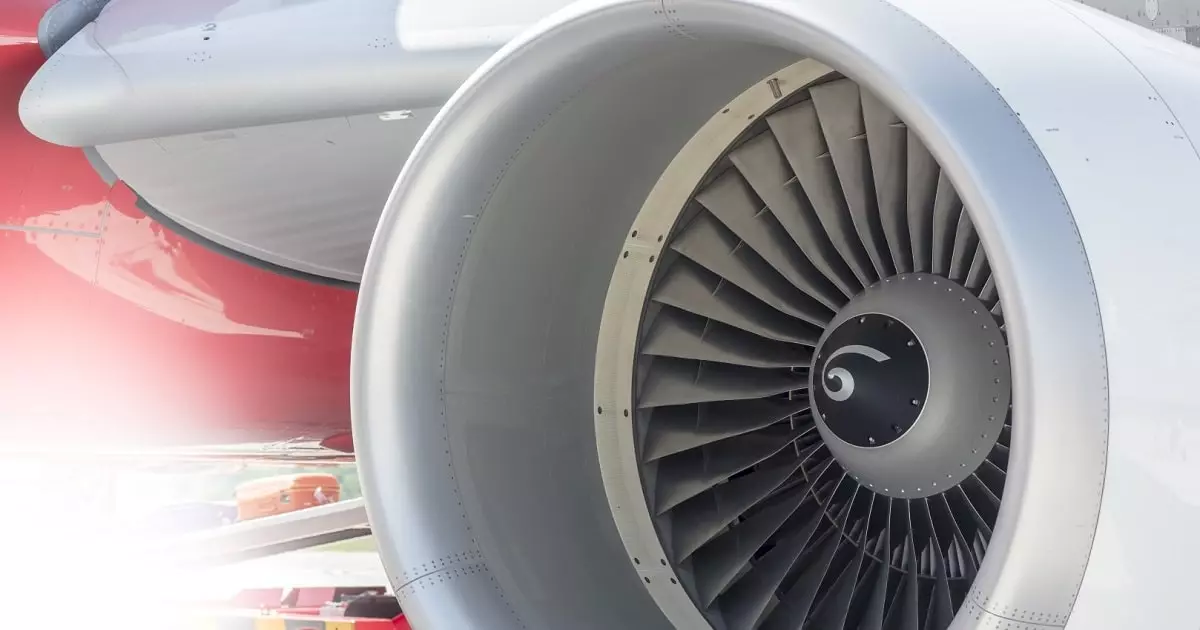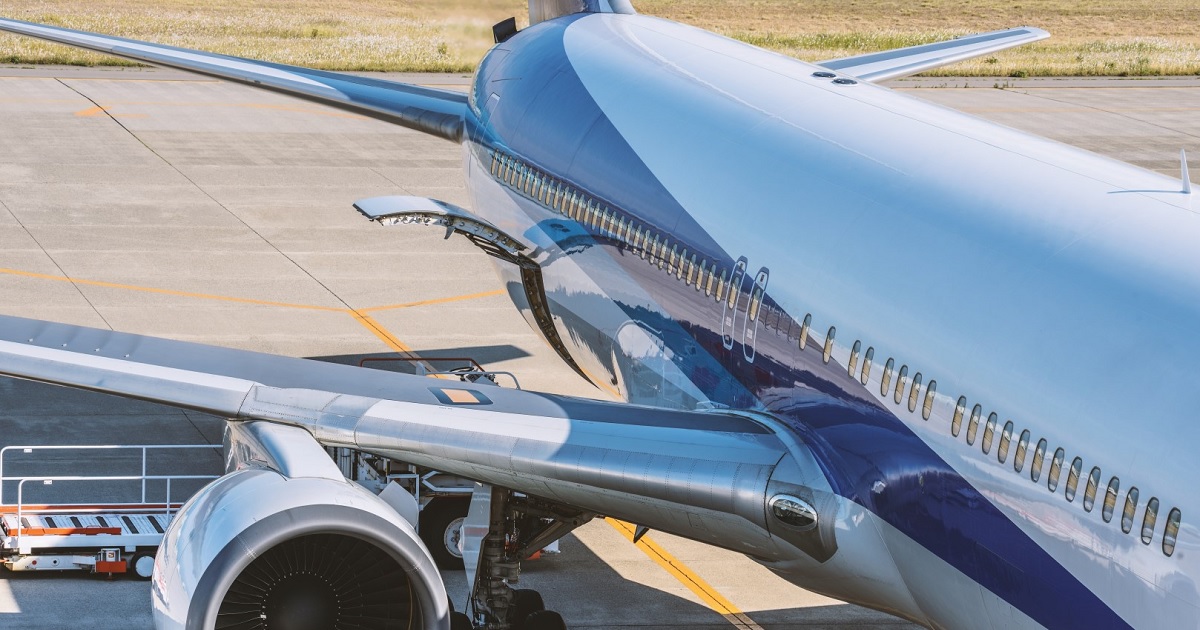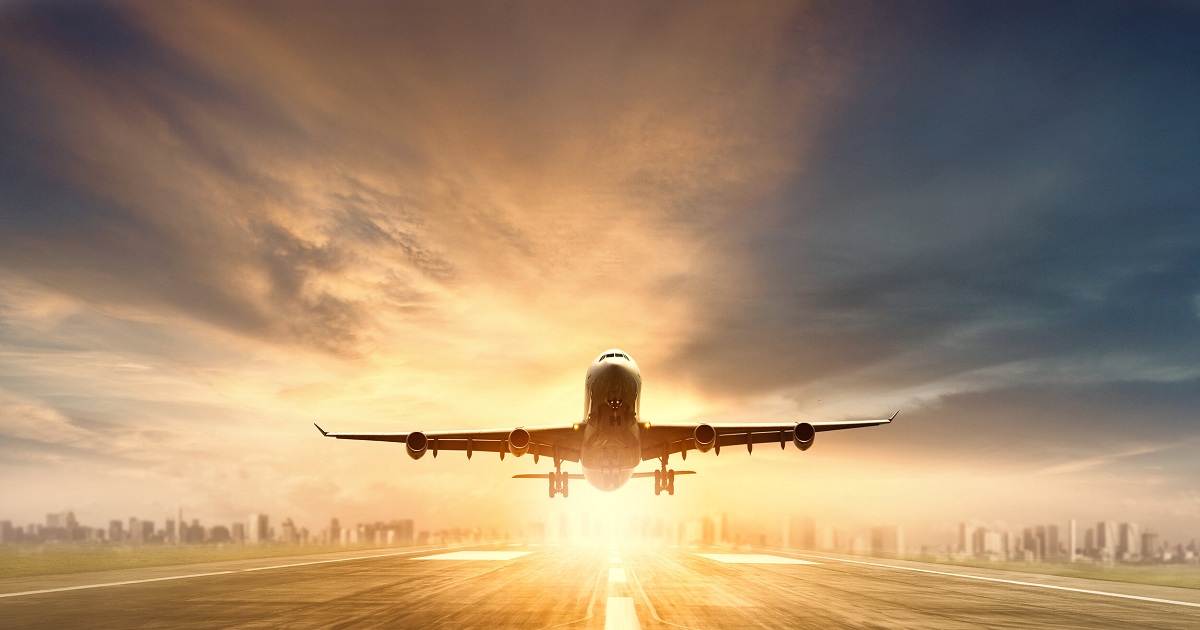
Air Transport
Article | July 15, 2022
The UK government has announced that from 11th February, fully vaccinated passengers arriving into the country will no longer have to take COVID-19 tests on arrival. The news follows the removal of pre-departure testing for fully vaccinated UK-bound passengers this month.
The relaxation of testing measures is something the aviation industry has been actively campaigning for, as it removes barriers to travel. Just today, IATA distributed a press release advocating for similar moves to be made by further governments. It cited a study focused on the UK carried out by Oxera and Edge Health which found that because Omicron is now highly prevalent in the UK, “if all travel testing requirements were removed there would be no impact on Omicron case numbers or hospitalizations.”
Read More

Design and Engineering
Article | January 7, 2022
Experience is Everything—human or mechanical. But Get it Right.
"AI's potential doesn't solely lie in its ability to improve business efficiency. Rather it lies in its ability to bridge the gap between businesses and customers. AI-powered communications enable for surged personalized and strengthening of information, stimulating customer trust and customer experiences."
- Kevin Gosschalk, CEO, Arkose Labs, in a conversation with Media 7.
Whether you make payments with a single tap in apps, ask Alexa to instruct in your smartphones, select Google assistance to find flights, or connect to airline companies, digital transformation is omnipresent. So, the appreciation comes naturally for how today's digital atmosphere transforms and affects our lives in every way.
Yes, you heard that right!
Using Google assistance to find flights is not the new way the industry uses AI. Instead, it has enhanced its way of AI usage into its process and operations. Like other businesses, aviation businesses are catching up well in using data and technology. With the help of these, they now create more compelling and prompter customer experiences.
The developments and revenues in the global aviation industry are skyrocketing. The industry expects almost 8.2 billion passengers to fly around the world by 2037. The rising numbers are because of digital transformation. The most interesting thing is aviation now has to manage high expectations of digital-savvy customers. It will be even more interesting now!
Before the blog breaks into discussing the futuristic airline customer experience, let's look at the flashback of the past customer experience scenarios (challenges) that prevailed in the airline industry.
Past Customer Experience Scenario in Airline
The aviation industry in 2018 recorded 4.4 billion passengers flying around the world. Furthermore, according to the IATA reports, the count is anticipated to reach 8.2 billion by 2037. But the industry is increasingly lacking behind in customer experience.
Complex booking procedures and missing out on the best flight offers because of complex app/website navigation and other potential customer services are issues raised in air travel today. Apart from this, customers also raise concerns over inflight infotainment systems. The systems merely do their job. Therefore, as many airport terminals are still empty, customer service representatives are working harder to overcome such issues.
As the industry has stepped into the fourth industrial revolution, AI rewards the best experiences for travels and other airline customer services. Now, airline marketers can find diverse AI-based digital solutions to sail through the cloud. And the findings are quite remarkable.
Let's come to the part where you will know how AI is helping the aviation industry scale its customer services.
How Can AI Enrich Airline and Scale Customer Services?
Airlines that leverage AI customer experience have had a significant advantage during the pandemic time. Their insights have been put into enriching the entire aviation business. Let's understand the 'how.'
Get Multiple Output in Seconds
When the demand for air fly rise, offering immediate services for customer handling teams becomes stressful. However, with AI, instances like this get a perfect solution.
AI can handle an infinite number of customers' demands at once. By leveraging AI-based digital solutions, you can scale up fulfilling airline operations in seconds. As a result, teams in your firm can easily diminish the increased demand for services and serve remarkable customer experience.
The benefit of AI can also be seen crosswise support channels. For instance, WestJet's ticket volume surged by 71% on Facebook Messenger and WhatsApp during the beginning weeks of COVID-19 disruption in North America. However, the airline kept its response time low as its virtual agent Juliet ultimately resolved 87% of tickets.
Identity New and Trending Issues
Aviation is an industry of challenges. Issues and obstacles keep knocking on the door of airline companies. In such cases, AI informs if there are any trending issues over channels. For example, during the COVID-19 outbreak, new onboard safety issues and questions towards social distancing surfaced for the first time. However, airlines have never come through about social distancing. So, by leveraging AI, they created a responsive plan for customers. They communicated the same through AI-enabled solutions on websites and applications.
In response to the coronavirus, Gartner suggests that companies should use chatbots in digital channels to focus on the most ordinarily asked questions to give solutions for customers.
Feedback Analysis
Air travel can be stressful at times, even for frequent and experienced travelers. For example, it could be passport-related or booking tickets, baggage checks, ticket prints, arrivals, departures, seat assistance, etc.
So, by analysis of data, artificial intelligence in customer experience learns about these pain points of airports and flight experiences. In this way, customer experience can be improved and enhanced simultaneously.
Then comes feedback. Using AI for feedback analysis, airlines can research the market. It can make informed decisions related to processes and operations.
"AI systems can quickly allow airlines to discover opportunities to intervene in the customer journey and turn a miserable experience into a delightful one. It also allows companies to respond faster in a synchronized and regulated way that is uniform with the business's values. Ultimately, we want to understand how an airline can fascinate a customer as well as where there is an abrasion in the customer journey and figure out how to fix it,"
- CEO of PureStrategy Inc. Briana Brownell
Briana highlights the growing relevance of natural language used in AI. Understanding technology in the processing and analysis of customer experience data thus allows businesses to explore the customer journey in their own words.
For example, ANIE, an AI assistance, can help customers find, book, and pay for flights.
Effective Communication
The speed of responsive communication to customer queries is highly considered to resolve issues. For example, airport issues like flight delays or baggage loss crop up quite often throwing. As a result, travelers usually get into a state of nervousness. However, when they do not get a response or explanation to their problems, they start considering other airlines for their future trips.
In these cases, AI software deployment can speed up and simplify services, automatically enhancing airline customer experience. In addition, effective customer emails with exact information can also solve significant issues and streamline employees' workflow using natural text.
Another way to automate and improve airline customer experience is chatbot development. Today, many airlines enhance their customer support with AI-powered chatbots on their websites and mobile applications.
The Business Insider’s research report says that by 2022, over 80% of airline businesses are likely to have chatbot automation implemented in operations.
These chatbots help passengers with bookings, managing flight schedules, and updating customers about general flight information. In addition, they can post queries and other types of assistance to get quick responses.
Self-Services at Airports
Easy self-check-ins, ticket booths, and overall communication (from booking to destination arrival) add to the comprehensive AI-based digital solutions.
The pandemic forced the aviation industry to witness the extraordinary rise of numerous contactless technologies. So, airports are now more focused on providing self-services for customers. These include contactless payments, luggage checks, robotic assistance for queries, and more like these.
Self-service systems in airports are critical automated systems. AI technology is installed to automate passenger journeys without any hurdles.
Today, airline companies and airports implement an end-to-end solution using artificial intelligence in customer experience to facilitate smooth passenger air travel and operations. In case of point, Delta Airlines, one of the world's largest global airlines, uses intelligent systems such as Fly to Gate by Thales. The system works with biometrics technology. The employees use it for the document scanning process to recognize and verify passengers at security checks.
Such technology reduces passenger check-in time and improves customer experience.
Future of AI Customer Experience in Airline Industry
There are many shreds of evidence that customers increasingly want a personal touch with their communications. They adore personalized services. Even airline companies are seeking profound connections with their customers. And this is the right time to act by offering personalized customer experiences.
Today, AI makes it possible for the entire airline industry to enhance customer experience with automation, provide self-service solutions, ensure safe air travel, and more. Technology is a powerful tool for airlines to make informed decisions that they couldn't take in the past few years. Now airlines can make decisions faster on essential decisions such as on pricing of tickets by analyzing data, enabling secure authentication of customers than before.
Ultimately, the success of artificial intelligence in customer experience is driven by having a deep understanding of different customer segments. By harnessing the power of conversational AI, airline businesses can improve their ROI, nurture long-term customer relationships, metrics being the core elements.
Frequently Asked Questions
How can airline companies improve their customer experience?
To improve customer experience, airline companies can follow these ways:
Focus on knowing the target audience
Meet unique and specific customer needs
Keep customers engaged on social media platforms
Make smart customer-targeted decisions
Be responsive towards customers
How does AI play its role in aviation concerning customer experiences these days?
AI plays a crucial role in helping customers in aviation to find the correct information more efficiently. It actively helps analyze customers' data and recommend services based on their browsing preferences about flights.
How does AI improve customer experience?
AI enables the power to strengthen customer engagement, encourage activities, and improve customer retention. Although not a replacement for human beings, it does help increase the efficiency of serving — like answering frequently asked questions, providing the correct information, and being available 24*7.
{
"@context": "https://schema.org",
"@type": "FAQPage",
"mainEntity": [{
"@type": "Question",
"name": "How can airline companies improve their customer experience?",
"acceptedAnswer": {
"@type": "Answer",
"text": "To improve customer experience, airline companies can follow these ways:
Focus on knowing the target audience
Meet unique and specific customer needs
Keep customers engaged on social media platforms
Make smart customer-targeted decisions
Be responsive towards customers"
}
},{
"@type": "Question",
"name": "How does AI play its role in aviation concerning customer experiences these days?",
"acceptedAnswer": {
"@type": "Answer",
"text": "AI plays a crucial role in helping customers in aviation to find the correct information more efficiently. It actively helps analyze customers' data and recommend services based on their browsing preferences about flights."
}
},{
"@type": "Question",
"name": "How does AI improve customer experience?",
"acceptedAnswer": {
"@type": "Answer",
"text": "AI enables the power to strengthen customer engagement, encourage activities, and improve customer retention. Although not a replacement for human beings, it does help increase the efficiency of serving — like answering frequently asked questions, providing the correct information, and being available 24*7."
}
}]
}
Read More

Aviation Technology
Article | July 26, 2022
The pandemic has caused a deeper level of disruption, which brought the aviation industry to a standstill for months. After facing long months of hardship, what vision and steps will be for airline recovery? This is a significant concern. This would now require complete planning over some crucial areas that form the pillars of the aviation industry.
It is especially airline businesses that require a novel set of advancements to build operational confidence. As the industry is rebooting, technology is benefiting. Be it robotics, IoT, biometrics, seamless integration, automation, and more will aid businesses and their processes.
Therefore, the industry’s next vision is being set according to the evolving changes in the airline industry due to covid-19. It will establish resilience and flexibility for businesses to adapt to changing conditions while improving efficiency.
Here are the key considerations that will be seen as airline recovery curbing airline challenges to plan new avenues beyond 2021.
Collaboration
Collaboration in the aviation business landscape has been the most important consideration after the pandemic affected the industry. Keeping the vision of collaborating with stakeholders and the commercial airline industry to focus on business and customer confidence will restart operations safely.
Collaboration in the future will have a better grasp and be more efficient because of better coordination of data sources being introduced currently. Collaboration becomes even more crucial in the coming years, where you will need updated and accurate information about your business operations. This vision will enhance chances of the following aspects as well:
Customized Experience
Leading to the modifications happening in the industry, you will be able to offer customized services to customers. Advanced integration functionalities will allow forming a contactless and personalized experience to curb the challenges prevailing. Providing transparent and reliable information to customers is one of the critical aspects of airline recovery and rebooting happening now. This is why a customized experience will aid airline businesses more safely in the coming years.
Personalization
Today, airlines, governments, and stakeholders are developing best practices for the immediate future of business with a greater focus on personalization throughout the service journey. It will help attract potential customers and end the general approach, which the industry was practicing before the pandemic.
Monitoring
To design a post-pandemic business model, you can look at the types of technological solutions and processes that have already been started and would emerge beyond 2021.
It has been envisioned that airline industry analysis, coupled with monitoring, would allow businesses to manage resources more efficiently. In this way, deployment of the technology stack will be more accessible according to the need. This will strive to reduce crowds at airports and, therefore, effective management with the help of predicted monitoring will be in action.
Digital Solutions
The new normal in the aviation industry, using technology, would continue to ensure physical contact is diminished or might be eliminated in the future. Mandatory digital checks, implementation of digital platforms, contactless services, and information collected through mobile devices are some elements of the new business models. The industry's vision in the coming years is to demonstrate how it can use digital technology for transformation at scale.
Advanced Processing System
The next, the aviation industry foresees, is utilizing technology for automation, security, identity management, and robotics. Using these, you can develop attractive yet safe experiences for staff as well as customers. The advancing data processing system and management offer a seamless module for companies to handle risks, controls, handling, and tracking. The inclusion of the advanced system at the airport, airline companies will make the process function efficiently. And because of optimized coordination through automated touchpoints, chances of an increase in revenue will be higher and faster than before.
Remote Processing
The continuous advancement of airline activities will significantly support capacity limitations in the coming years. Because of this, you will have safer processing of data and information without any threats or breaches.
The pandemic has put greater focus on the need for such a flexible approach with resilience. Also, it brings urgency to the availability of technology to use while going remote so that you can provide flexibility to your employees to work frictionless.
The industry's vision in its plan is to unlock the full benefits of technology to access and initiate global coordination remotely.
A Changed Way to do Business Today—Sustainability
Companies operating in the airline business are still understanding to survive in the times of COVID-19. Being fast and evolving is the only way they realized to fight against the current situation.
The new normal is bringing changes in the airline industry post covid. This will help the industry to get back its wings to forecast and set up its next vision in the future.
Therefore, industry stakeholders need to quickly put immediate business restart efforts to focus on sustainable implementations. This will make the future actions of the aviation industry monitor and evaluate effectively well in response to the ongoing pandemic. Also, it would help them be ready to face even harsh circumstances if anytime it approaches.
Frequently Asked Questions
What are the risks to the aviation industry during COVID-19?
The level of risk is on the rise in the COVID-19 situation at present in the aviation industry. It may affect the operation, new business models, management, monitoring, and evaluation more as remote work culture is hyped.
What are the main sectors of the airline industry that need improvement?
There are limited sectors in aviation. However, the main ones that need improvement are commercial aviation and business aviation.
What are the crucial areas of operation in the aviation industry?
Flight operations are crucial, including operation control, connectivity, network, data handling, integration, maintenance planning, and software.
{
"@context": "https://schema.org",
"@type": "FAQPage",
"mainEntity": [{
"@type": "Question",
"name": "What are the risks to the aviation industry during COVID-19?",
"acceptedAnswer": {
"@type": "Answer",
"text": "The level of risk is on the rise in the COVID-19 situation at present in the aviation industry. It may affect the operation, new business models, management, monitoring, and evaluation more as remote work culture is hyped."
}
},{
"@type": "Question",
"name": "What are the main sectors of the airline industry that need improvement?",
"acceptedAnswer": {
"@type": "Answer",
"text": "There are limited sectors in aviation. However, the main ones that need improvement are commercial aviation and business aviation."
}
},{
"@type": "Question",
"name": "What are the crucial areas of operation in the aviation industry?",
"acceptedAnswer": {
"@type": "Answer",
"text": "Flight operations are crucial, including operation control, connectivity, network, data handling, integration, maintenance planning, and software."
}
}]
}
Read More

Air Transport
Article | July 15, 2022
NASA is known for developing and launching spacecraft that have a significant environmental impact. However, the space agency is fully on board with the net-zero movement. NASA supports the White House's Aviation Climate Action Plan. It is helping fund several aviation projects that aim to reduce the aviation industry’s damage to the environment.
NASA’s Sustainable Flight Demonstrator Program
NASA focuses on technologies for single-aisle aircraft, which are the powerhouses of many airline fleets and account for nearly half of global aviation emissions. NASA's Sustainable Flight Demonstrator (SFD) project aims to reduce carbon emissions and keep the US competitive in the design of single-aisle commercial airliners, which are in high demand.
"Since its creation, NASA has worked with industry to develop and implement innovative aeronautics technology and has shared it with the world," said NASA Administrator Bill Nelson. "Now, with this ambitious new project, we're again joining with US industry to usher in a new era of cutting-edge improvements that will make the global aviation industry cleaner, quieter, and more sustainable."
NASA Wants to Reduce the Environmental Impact of Commercial Aircraft
The program’s goal is to build, test, and fly a large-scale demonstrator. NASA hopes to find a business partner for a Funded Space Act Agreement with its Armstrong Flight Research Center in Edwards, California, by the beginning of 2023.
The agreement would draw on private-industry knowledge and experience, with an awardee developing a suggested technical plan and committing considerable cash to the project. Under this agreement, NASA would not purchase an aircraft or any other hardware for its missions. The mission of NASA is to develop new and innovative technologies and capabilities.
NASA will collect data on the ground and in the air. Agency and industry teams can use it to test the airframe configuration and related technologies.
Moving Away From Space
NASA's technologies are typically cutting-edge. However, as with many high-end items, the benefits and applications frequently filter down to the masses. NASA's specialized technology and research frequently has civil aviation applications. It's interesting to see how NASA seems to be moving away from space and going after planes that fly closer to Earth.
Read More